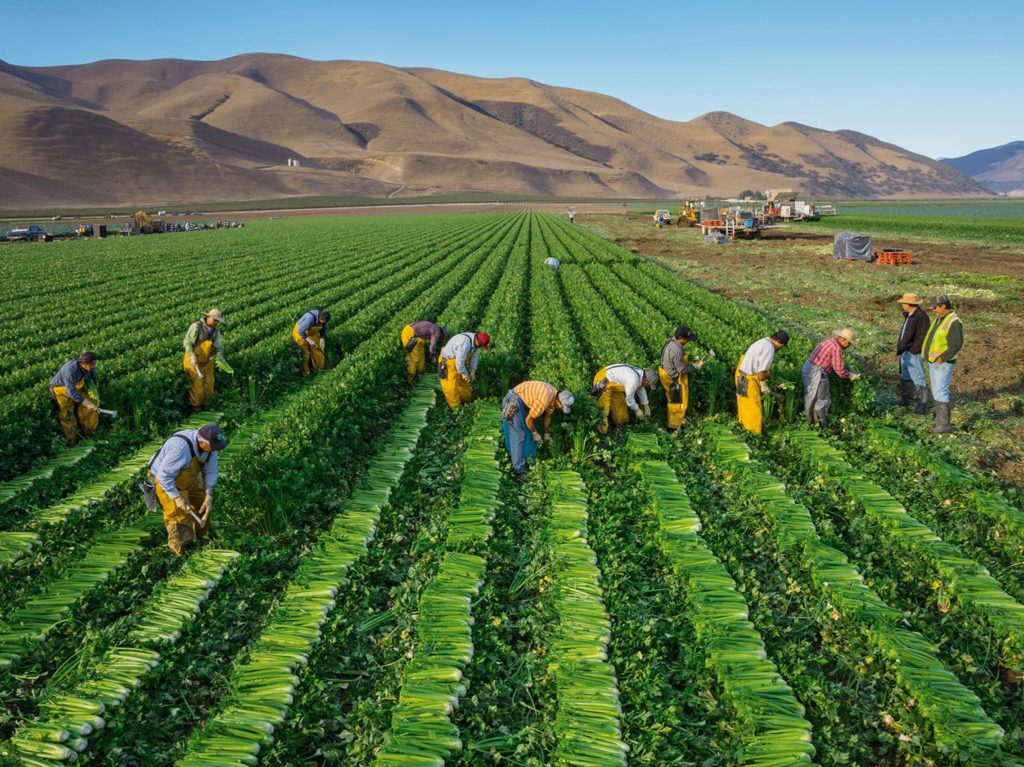The importance of agriculture in human society and the sustainability of life on Earth is immense. This article explores the many benefits agriculture has on our daily lives, covering its economic, social, health, and environmental dimensions.
Introduction to Agriculture
Agriculture is a broad term that includes the farming of grains, the raising of livestock, and other related activities involved in the production of raw materials, food, and fiber. Agriculture has played a vital role in human progress and survival from the first civilizations.
History of agriculture and its significance
Agriculture has been a critical factor in humanity’s development since its beginning. In human history, the transition from nomadic to agricultural settlements marked an important milestone. It enabled the development of civilizations and permanent settlements.
The Economic Importance Of Agriculture
Contribution to the GDP
The agriculture sector is a significant contributor to many nations’ gross domestic product (GDP). It provides livelihoods to billions of people around the world and is a substantial source of income in rural areas.
Employment Opportunities
Agriculture offers many employment opportunities in various fields, such as farming, agribusiness, and food distribution. Agriculture is vital to rural economies and livelihoods.
Agriculture’s Environmental Benefits
Soil conservation
Crop rotation, minimal tillage, and cover crops are all agricultural practices that help conserve the soil’s fertility and health. Sustainable agriculture protects natural resources by preventing soil erosion and improving the soil’s structure.
Carbon Sequestration
Agri-land also serves as a carbon sink, removing carbon dioxide from our atmosphere to reduce climate change. Agroforestry, organic farming, and other practices contribute to the sequestration of carbon dioxide. This enhances agricultural ecosystem resilience.
Agriculture and Health Benefits
Food Accessibility
The primary food source is agriculture, which ensures access to nutritious foods that are essential for health and well-being. Healthy diets are based on fruits, vegetables, grains, and foods rich in protein from agriculture.
Exercise
Agricultural activities encourage physical activity and outdoor exercise and contribute to better fitness and health. Engaging in farming tasks like planting, harvesting, and caring for livestock can achieve physical activity and healthy living.
Impact on Society of Agriculture
Community Development
The agricultural industry fosters community development by promoting social interaction, collaboration, and knowledge sharing. Farmers’ markets and farming cooperatives strengthen local economies and social bonds.
Cultural Preservation
Agriculture plays a vital role in the preservation of cultural traditions and heritage that have been passed on through the generations. Seed saving, traditional farming, heirloom cultivating, and other practices embody culture and heritage. They enrich societies by enhancing their diversity and resilience.
Technological Advancements in Agriculture
Technology has transformed agriculture and opened the door to innovative techniques, which have led to increased productivity.
Precision farming
Precision farming technology, such as GPS-guided machines, drones, and sensors, allows farmers to maximize resource usage, reduce environmental impact, and increase crop yields through precise monitoring and management.
Biotechnology
Biotechnological advances in agriculture, such as genetically modified organisms and gene-editing techniques, offer solutions for global challenges like pest resistance, disease, and food security. These technologies have the potential to improve crop resilience and nutritional content.
Sustainable Agriculture Innovation
Organic Farming Methods
By avoiding synthetic chemicals, organic farming practices prioritize soil health and environmental sustainability. Composting, crop rotation, and biological pest management are all practices that support ecological balance and biodiversity.
Conservation Agriculture
Conservation agriculture principles, such as minimal soil disturbance, permanent cover, and diverse cropping systems, promote resilient land management. These techniques increase agricultural productivity by preserving the soil’s structure and moisture.
Food Security and Agriculture
Global Food Production
Agriculture plays a vital role in meeting the nutrition needs of a rapidly growing global population. To combat hunger and malnutrition, sustainable agricultural practices, along with a fair distribution of food and equitable access, are necessary.
Rural Livelihoods
Agriculture provides livelihoods to millions, especially in rural areas, where job opportunities are often limited. By supporting smallholders and rural communities, agriculture contributes to sustainable development and poverty reduction.
Future of Agriculture
Agriculture faces many challenges in the future, including climate change, resource depletion, and population increase. However, it also offers opportunities for sustainability, innovation, and resilience.
The Challenges and the Opportunities
Collaborative efforts are needed to address food insecurity, environmental degradation, and socioeconomic inequality. Innovative solutions will also be required. Adopting agroecological practices, investing in research and development, promoting sustainability, and considering companies in the transportation field are all crucial to building a resilient and prosperous food system for future generations.
The conclusion of the article is:
Agriculture plays a vital role in the lives of all people, including economic, social, and environmental dimensions. By recognizing its importance and supporting it, we can use the potential of sustainable agriculture to feed communities, protect natural resources, and create a resilient future.
Unique FAQs
- What role does agriculture play in environmental sustainability?
- What is the role of technology in modern farming?
- What can you do to support sustainable agriculture in your community?
- What are the advantages of organic farming?
- What challenges could the future of agriculture face?
